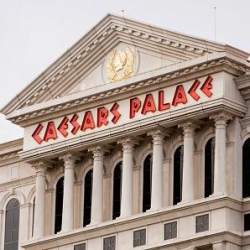Caesars Entertainment’s bankruptcy filing in Chicago in Thursday triggered a chain of events which could lead to a battle for control of the company. On Friday, bondholders filed suit in Delaware to block the Chicago filing. A Delaware judge blocked the Chicago filing, so the normal bankruptcy process could be forestalled.
Gary Loveman announced in December that Caesars Entertainment had come to an agreement with 80% of its first lien bondholders on a plan to restructure one division of the company: the Caesars Entertainment Operation Company. CEOC holders $18.4 billion of the gaming company’s $23 billion in debt.
CEOC Will Split into Two Entities
In the plan, CEOC would be split into two divisions. One would continue to handle the normal operations of Caesars Entertainment. The other would be a real estate investment corporation. The two division would split the debt, with the property company holding about $9.6 billion in CEOC’s debt. First lienholders would receive equity in this new entity, as a means of compensation. Also, Caesars Entertainment proper and Caesars Growth Partners, which are both publicly-traded companies these days, would merge into the same company. This would give Caesars Entertainment additional cash to complete the reorganization.
That leaves 20% of first lien bondholders who did not agree to that plan. Those junior bondholders are the ones who filed in Delaware on Friday. Those bondholders are arguing they have the right to assets held by CEOC, but they are arguing for control of more of the gaming company’s assets. They also argue that they have the right to assets spun out to Caesars Growth Partners and Caesars Entertainment Resort Properties last summer.
Caesars Growth Partners
Last summer, Caesars Entertainment created Caesars Growth Partners, a new subsidiary which took control of some of CEOC’s properties, including Horseshoe Baltimore Casino, the Planet Hollywood Resort & Casino in Las Vegas, two other land-based casinos, and Caesars’ online gaming properties (Caesars Interactive). At the time of the spin-off, bondholders expressed their displeasure, saying Gary Loveman was taking assets away from a struggling division in order to hide those assets in a later bankruptcy filing. Those concerns appear to have been correct.
On Friday, the Motley Fool predicted that the two filings would lead to years of legal disputes over control of those assets. The Fool also predicted that things would not end well for Caesars’s investors.
Apollo and TPG Retain Control
Creditors have been angered that Apollo and TPG were allowed to retain their stake in the company. Those companies, which took the company private in 2008 a few months prior to the onset of the global recession, have been shifting debt around ever since, in hopes of saving the company from bankruptcy. As most gaming and financial analysts have predicted, those moves did not work. Apollo and TPG are blamed for Caesars Entertainment’s current troubles, so shareholders are not happy they are allowed to continue controlling the gaming company’s future.
Bloomberg Analysis Piece
In a broadcast piece, Bloomberg analyzed the company as three separate entities. There is the resort properties unit, which is considered “Good Caesars”. There is the new growth properties unit, which is also considered “Good Caesars”. Then there is the operating unit, which is considered debt laden and therefore “Bad Caesars”. Creditors argue that those controlling the company have set up this situation in order to shift debt onto the bondholders, and this ploy should not work. Instead, the assets spun-off to the “Good Caesars” units were moved in bad faith, so the creditors should be given control of those assets.
Apollo Capital is known for aggressive negotiations with creditors when their investments fail, was able to convince 80% of their creditors to go along with their plan. But a group of dissident creditors has emerged that wants not part of the plan, because they see the Thursday bankruptcy filing as part of an underhanded agenda to rob them of assets which rightfully belong to them. Under the plan Caesars filed, investors are expected to give up about $9.8 billion of their debt claims, which amounts to nearly half of their $18.4 billion stake in Caesars Operations.
Creditors Incentivized to “Push Back”
Michael Friedman, a partner at Chapman & Cutler LLP, told Bloomberg, “There are going to be a lot of creditors (CZR) with a lot of incentive to push back very hard on this attempt to basically retain the equity for this company.“

